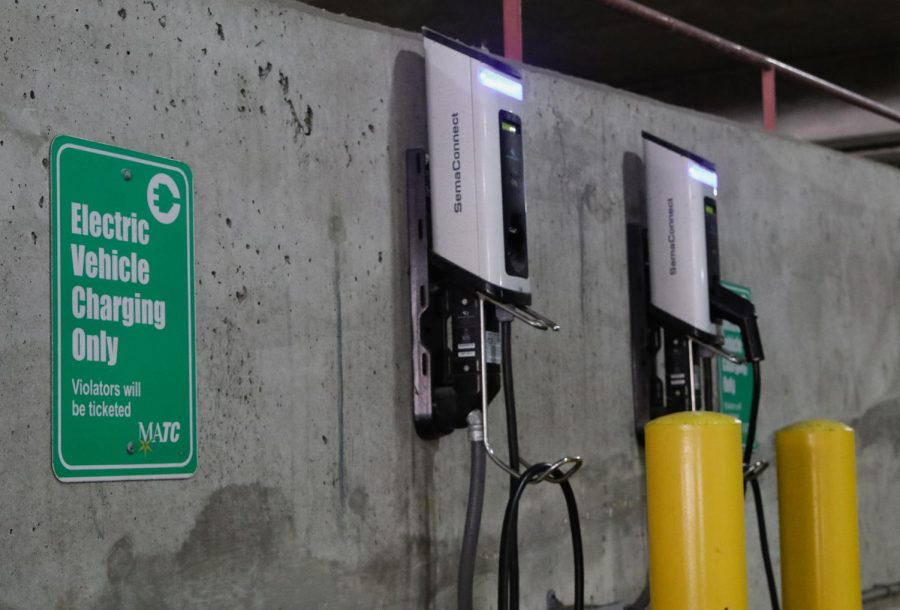With the arrival of Zipcars to Marquette’s campus, sustainability comes through subtraction by addition.
Zipcar is an international program in which members pay an annual fee and can then reserve a car for an additional hourly or daily rate. The program aims to reduce the amount of cars on the road by allowing people to share a vehicle rather than owning or renting one. The company’s website claims that each Zipcar takes 15 to 20 privately-owned vehicles off the road.
The Toyota Prius and Scion xB parked behind Zilber Hall are available for reservation starting today. There are already Zipcars at 103 universities across North America, including the University of Wisconsin-Milwaukee, and in 97 cities throughout North America and the U.K.
“It allows people not to bring their cars to campus,” said Mike Whittow, Marquette’s sustainability officer. “Which means faculty and staff can take mass transit in, and take the car off campus for an hour for a meeting. Students can go places that mass transit doesn’t go. Juniors and seniors, for job interviews.”
To join the Zipcar program, users must pay a $25 application fee and then an annual fee of $50. Cars can be reserved for $8 per hour or $66 per day on weekdays, and $9 per hour or $72 per day on weekends. These fees include gas, insurance and 180 miles per day.
The only costs to the university were to market the program on campus, Whittow said.
Zipcar also has a free iPhone app that allows users to find and reserve cars in their area.
Whittow said Marquette chose Zipcar over other similar programs from Hertz and Enterprise because it was more student-friendly.
“You can be 18 to 21 years old with a good driving record (as opposed to 25 for a rental car),” he said. “Zipcar is very much geared towards universities and students.”
Zipcar student members aged 18 to 20 can only use cars on their university’s campus; those 21 and older can use Zipcars in any city.
Whittow said that given Marquette’s urban location, Zipcars can supplement public transportation.
“Our students are lucky; they don’t have to choose because U-Pass is part of their tuition,” he said. “What we wanted to do is provide another option for our students, faculty and staff, a sustainable way and another form of transportation.”
Some students agreed.
“I would use it for errands, everyday stuff like if I needed food or school supplies,” said Luis Mattei-Mendez, a freshman in the College of Engineering.
Matt Plank, a junior in the College of Engineering who uses the car he already has on campus to get to work, said he wouldn’t use a Zipcar because he would have to pay to leave the car at work all day.
“If I didn’t have a job off campus it would be a possibility,” Plank said. “But because I do, there’s no way I would ever use one.”
But Whittow maintains that vehicle-sharing programs like Zipcar are part of the future of transportation.
“With the cost to operate a vehicle, young graduates that live in downtown Milwaukee choose not to own a car,” he said. “In some of the largest cities, and even in Milwaukee, you might not need a vehicle.”




